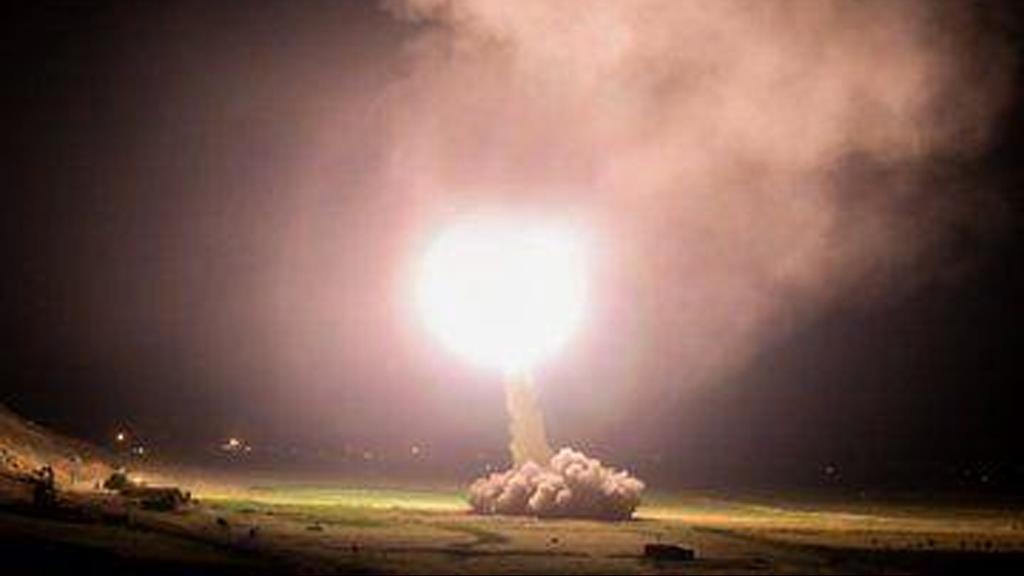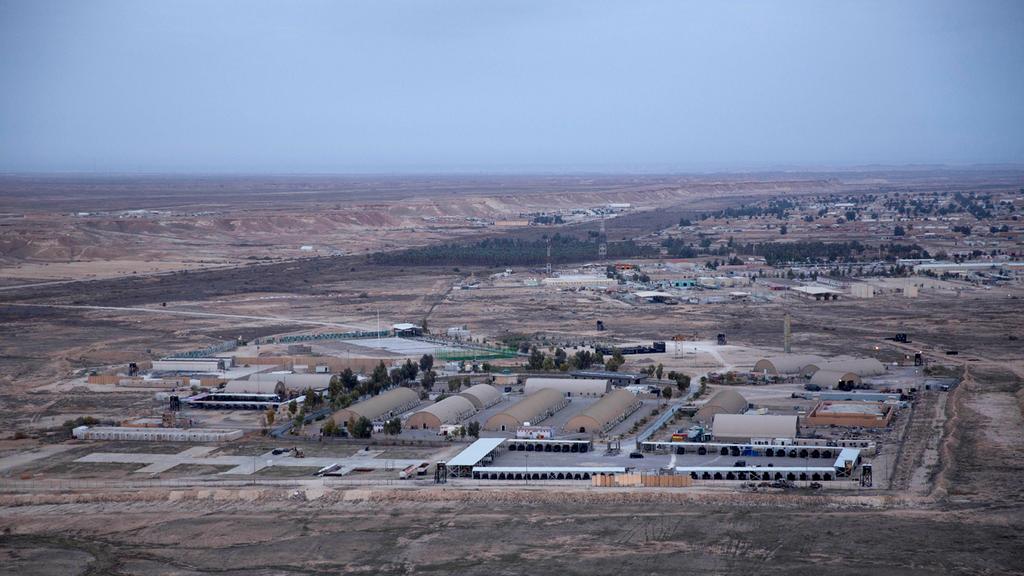Getting your Trinity Audio player ready...
The aim of Iran's "revenge" missile strike against two U.S. army bases in Iraq on Wednesday night, was first and foremost to hurt and kill American soldiers.
The attack was measured in nature to test Washington's response in order to asses further action by the Islamic Republic.
The two Iraqi bases, one in the northern Kurdish populated region of Erbil and the other, Ayn Al Asad Airbase in the western Al-Anbar region, are host to some 1,000 American soldiers.
The attack was unequivocally a comment to President Donald Trump and his Secretary of State Mike Pompeo about what the Iranians see as "American hubris."
Although Iranian media has claimed the deaths of "80 American servicemen," the casualties and damage done remain unclear - including to the Iraqi and Kurdish soldiers also stationed at those bases.
Iranian missile attacks on American bases in Iraq
(Video: Reuters, Twitter)
From what can be seen so far, the Iranians attacked to hurt to Americans, but not provoke an all-out escalation or even war.
Ayn Al Asad Airbase is the American main base in Iraq.
The airbase is a huge military complex, located at a relatively safe region of Iraq.
The airbase was a central takeoff point for the air battles against Islamic State in Iraq and Syria.
The base in Erbil is home to U.S. special forces and is where forces took off from in October to kill former Islamic State leader Abu Bakr Al-Baghdadi.
It should be noted that the Ayn Al Asad Airbase is in a region mostly populated by Sunnis and the Erbil base located in the Autonomous Kurdish Region, both groups that are rather hostile towards Iran.
Due to the distance of the bases from the Iranian border (Ayn Al Asad is about 300 km and Erbil is about 100 km), it could be inferred that the missiles used were most likely the "Fateh 313" type.
These missiles are long-ranged, with a warhead packing hundreds of kilograms of explosives.
A spokesperson for the Revolutionary Guard Corps stated that about 32 missiles were launched, though the Pentagon announced only about 12 missiles hit their targets.
Iran's message to Israel: Don't Intervene
A warning voiced by an Iranian official, stating that Israel might find itself also as a target, is meant to deter the Jewish state from taking part in an American response.
Yet it is fair to assume that the rocket fire is not the end of the story – with the Iranians likely planning further revenge attacks for Soleimani's death.
It is also yet unclear what Washington's response will be, if it all. If the damage on the ground is not too severe, it is likely that Trump will not retaliate.
As it stands now, it does not seem that there are any American casualties.
Iranian Foreign Minister Mohammad Javad Zarif said on Twitter said that the Islamic Republic seeks neither escalation of the war, but "will defend ourselves against any aggression."






